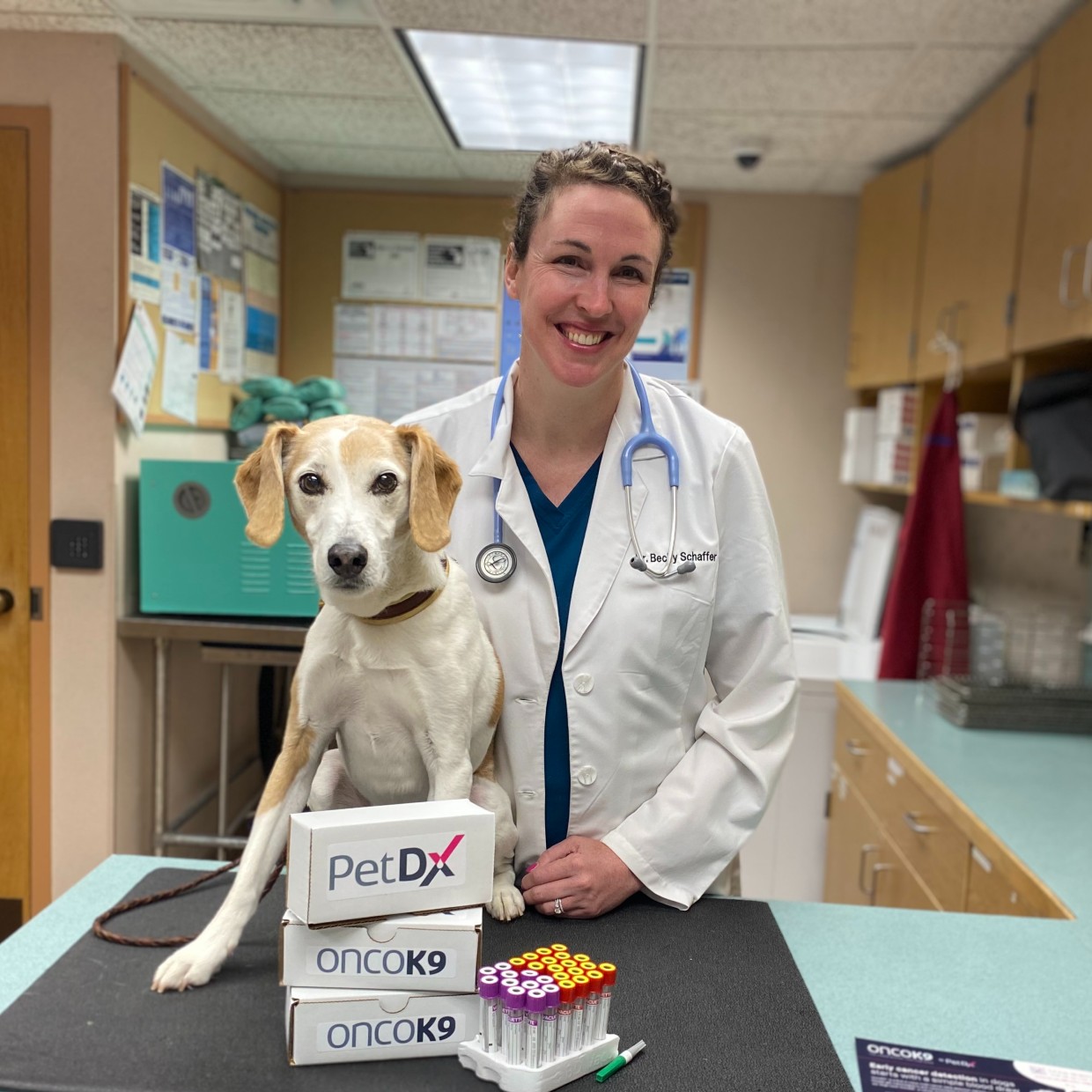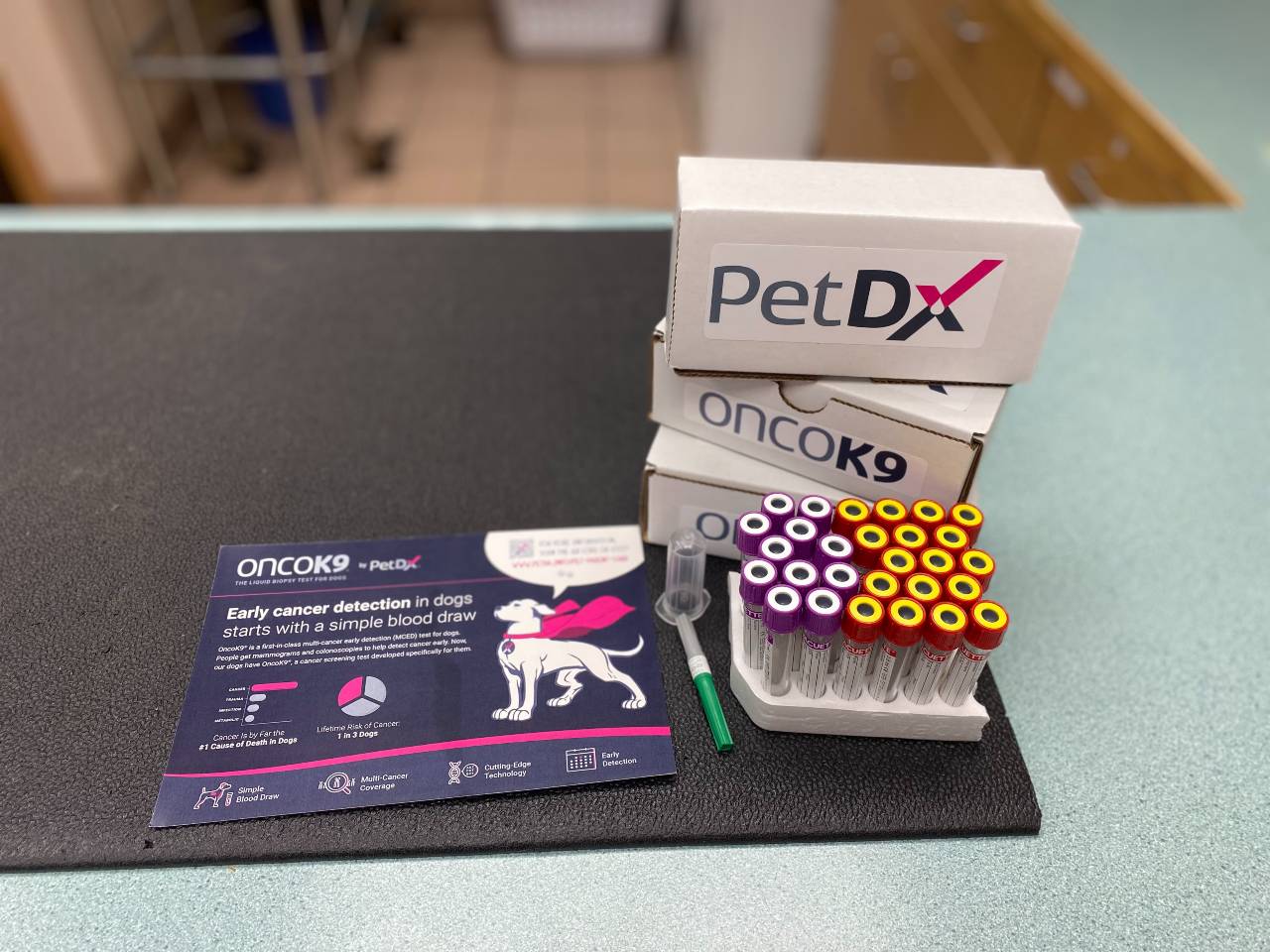
With OncoK9, cancer detection has gotten a little easier
Veterinary medicine has its share of unknowns. When a pet isn’t feeling well, the answer isn’t always obvious and sometimes there are many possible culprits to eliminate or pinpoint. For our dedicated veterinary staff, one relatively new product is making their job just a little bit easier.
OncoK9 is a liquid biopsy test that checks a dog’s blood for the type of abnormal DNA that is known to cause cancer. Based on technology from human medicine, the test has provided an exciting opportunity for veterinarians to determine what the next step in a dog’s care should be. “If this test picks up abnormal DNA, then it is very likely that there is a cancer present,” said CHFA’s Dr. Becky Schaffer. “When you get a positive result, it means cancer is likely causing the problem and we need to find it.”
The OncoK9 test can detect up to 30 different types of cancer. It can even pinpoint the type of cancer present in the case of lymphoma, and “the technology keeps evolving,” said Dr. Schaffer, “so there may soon be even more cancer types the blood test can determine.”
A simple blood draw
If there is a reason to suspect cancer in a dog, the veterinarian performs a simple blood draw, then submits the sample to a lab. Around two weeks later, they receive the results. “So far, the results we’ve gotten back have been normal,” said Dr. Schaffer, “which in one case was really cool: the dog had a history of osteosarcoma, a typically aggressive type of bone cancer that had led to an amputation for her. So it was great to be able to tell the owner, ‘There is no abnormal DNA; there’s no active osteosarcoma.’”
While a negative result from the OncoK9 test doesn’t necessarily completely rule out the presence of cancer, the test is a helpful tool to guide veterinarians in their diagnoses. “I think it’s also important to know this test is just a snapshot in time,” said Dr. Schaffer. “Nothing about it is going to predict the development of cancer and a normal test today doesn’t mean cancer won’t develop in the future. But it helps us monitor their health, and especially in the case of our senior patients it can help us rule out cancer and find out the reason for their issues.”
One 13-year-old dog, Jax, was exhibiting troubling symptoms. “He is an older dog and so has a higher risk of cancer,” said Dr. Clayton Siegle, who treated Jax. “He also had a couple of months’ history of increased thirst and urination. Cancer can be a differential diagnosis for these clinical signs.” A diagnostic workup didn’t provide any definitive answers for Jax’s symptoms, but an abdominal ultrasound showing a mass-like structure in his abdomen made cancer seem increasingly possible.
“It was too risky to get a biopsy due to the major blood vessels involved,” said Dr. Siegle. “So when the OncoK9 test became available we decided to use it to determine whether the mass was cancerous.” Jax’s results from the test came in recently as normal, helping Dr. Siegle determine a new path to explore. “Our working diagnosis is this is a larger blood clot and we are treating it with Plavix to try and break it down slowly.”
A case-by-case basis
Whether to use the OncoK9 test or not is a case-by-case decision between the veterinarian and the owner. “We just need to have a conversation with every client about the pros and cons,” said Dr. Schaffer. “It is pretty costly, so that's something that we have to take into account. I don't anticipate this test is going to fit into every patient's care, but I'm really excited that we have new technology to try to find cancer earlier in our patients.”



